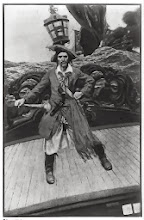Return of the Magi

Christmas is here and once again I make my annual pilgrimmage to the works of T.S. Eliot to seek out The Journey of the Magi. I notice that last year I stated that I was beginning to understand it. This year I know more, but am less certain that I have any real understanding.
A quick search of Wikipedia reveals "The poem is, instead of a celebration of the wonders of the journey, largely a complaint about a journey that was painful, tedious, and seemingly pointless...The magus seems generally unimpressed by the infant, and yet he realizes that the incarnation has changed everything...The birth of the Christ was the death of his world of magic, astrology, and paganism. The speaker, recalling his journey in old age, says that after that birth his world had died, and he had little left to do but wait for his own end...His narrator in this poem is a witness to historical change who seeks to rise above his historical moment, a man who, despite material wealth and prestige, has lost his spiritual bearings."
All perfectly reasonable, but lacking something. The great rennaissance Magi, such as Ficino, Mirandola and Agrippa, saw the biblical Magi as symbolic of a proper place for Natural magic & astrology within acceptable Christian doctrine. The three sage's wisdom brought them to seek out and pay tribute to the Christ child, thus legitimizing their practices in the proper context. Nevertheless, this was a dangerous path in the eyes of the church, and those who walked upon it often faced the perils of human judgement. One only need reference the trial and execution of Giordano Bruno to understand the stakes at hand. And yet, the tradition persisted in the esoteric underworld, through the Rosicrucian furor and beyond, through the ultimate divorce of magic and science and into the uncertain vogue of the 19th century theosophists and occultists, as well as today's new age mysticism.
If the Wiki's analysis is lacking something, it is the framing of Eliot's poem within the magical mystery tradition which he and his writing seems to explore. He was not alone in this regard. Charles Williams and his fellow Inklings & associates, each in varied but thematically connected ways, managed to reflect the possibilities of a Christian magical theology, hidden from the profane, but once known, forever changing the way one views this world. There is a hint of this in Eliot's Journey, like a watery reflection of the night sky, with one bright star in the west winking through the ripples. Intentional? I'll leave it to the reader to decide.
T. S. Eliot. The Journey of The Magi:
A cold coming we had of it,
Just the worst time of the year
For a journey, and such a long journey:
The ways deep and the weather sharp,
The very dead of winter.'
And the camels galled, sore-footed, refractory,
Lying down in the melting snow.
There were times we regretted
The summer palaces on slopes, the terraces,
And the silken girls bringing sherbet.
Then the camel men cursing and grumbling
And running away, and wanting their liquor and women,
And the night-fires going out, and the lack of shelters,
And the cities hostile and the towns unfriendly
And the villages dirty and charging high prices:
A hard time we had of it.
At the end we preferred to travel all night,
Sleeping in snatches,
With the voices singing in our ears, saying
That this was all folly.
Then at dawn we came down to a temperate valley,
Wet, below the snow line, smelling of vegetation;
With a running stream and a water-mill beating the darkness,
And three trees on the low sky,
And an old white horse galloped away in the meadow.
Then we came to a tavern with vine-leaves over the lintel,
Six hands at an open door dicing for pieces of silver,
And feet kicking the empty wine-skins.
But there was no information, and so we continued
And arrived at evening, not a moment too soon
Finding the place; it was (you may say) satisfactory.
All this was a long time ago, I remember,
And I would do it again, but set down
This set down
This: were we led all that way for
Birth or Death? There was a Birth, certainly,
We had evidence and no doubt. I had seen birth and death,
But had thought they were different; this Birth was
Hard and bitter agony for us, like Death, our death.
We returned to our places, these Kingdoms,
But no longer at ease here, in the old dispensation,
With an alien people clutching their gods.
I should be glad of another death.
Now after Jesus was born in Bethlehem of Judea in the days of Herod the king, behold, wise men from the East came to Jerusalem, saying, "Where is He who has been born King of the Jews? For we have seen His star in the East and have come to worship Him..." The star which they had seen in the East went before them, till it came and stood over where the young Child was.
[Matthew 2:1–10]


